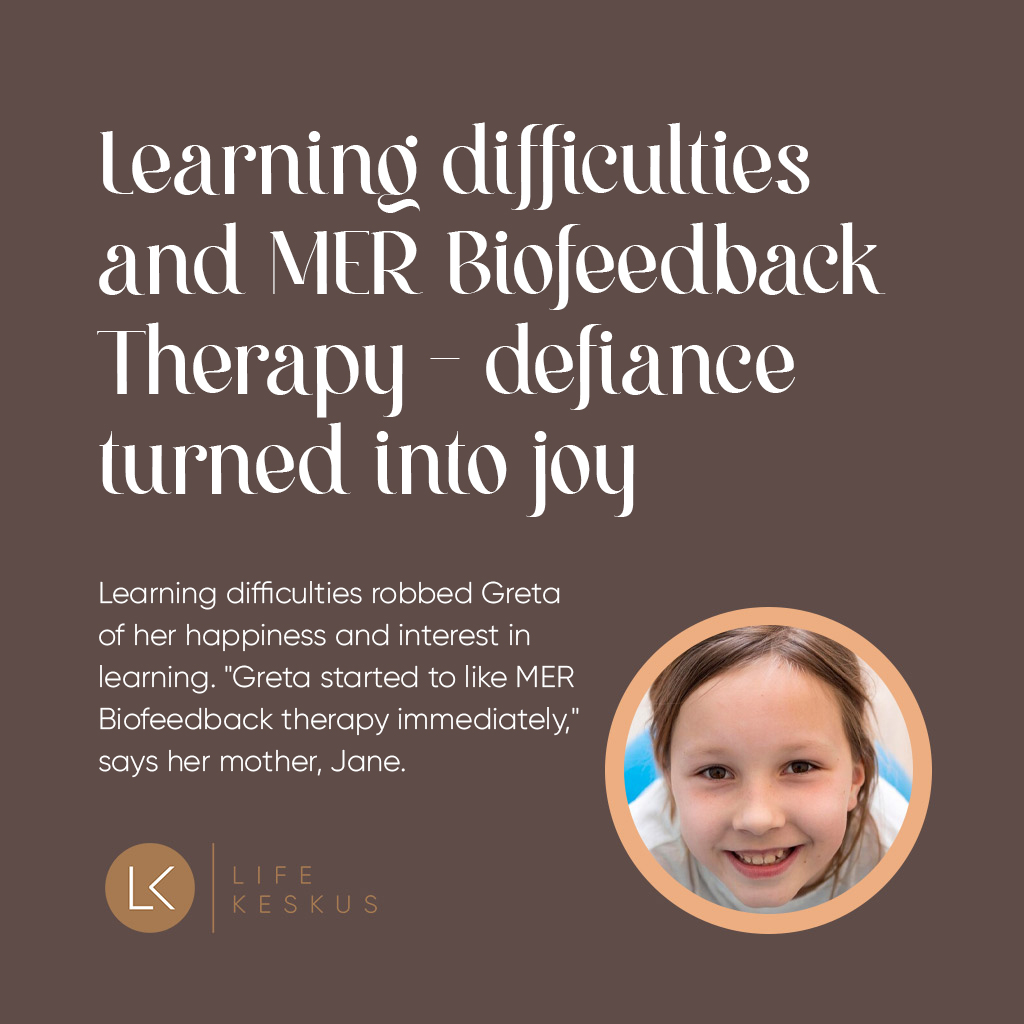Learning difficulties and MER Biofeedback Therapy – defiance turned into joy
Jane, Mother of 11-Year-Old Greta
When my daughter Greta was born, she seemed perfectly healthy at first glance. Later, however, it turned out that she has a congenital gene mutation that primarily causes physical difficulties. At one point, she also developed learning difficulties and defiance towards learning.
Greta was 8 months old when it became clear that her development had slowed down. Research revealed that she has changes in the cerebellum, i.e., brain damage.

The picture is illustrative. Image by Freepik.
At the age of 3.5, she was diagnosed with spinocerebellar ataxia caused by a gene mutation.
She has uncoordinated and clumsy movements, a gait disturbance, and loss of balance due to cerebellar damage. To date, over 40 different types of spinocerebellar ataxia have been identified. Greta has type 5, which is rare globally, and she is the only child in Estonia with this diagnosis.
As Greta has special needs, I have taken it upon myself to support her in every possible way. Greta attends many different therapies that mainly support her physical body. At one point, I noticed that Greta was having trouble concentrating and her academic performance was declining. I’m not entirely sure if these issues are due to her illness or if they are typical growing pains.
I explored different options and read that MER Biofeedback therapy could be helpful for learning difficulties. It also seemed like a good concentration exercise for Greta, as she would need to sit calmly in one place for an hour during therapy.

The picture is illustrative. Image by Freepik.
Greta immediately liked biofeedback therapy.
While she doesn’t always go to other therapies with enthusiasm, she always goes to MER Biofeedback therapy willingly. I know she draws and interacts with the therapist there. For me, it’s already a positive sign that she wants to attend the therapy.
I clearly remember that after the second therapy session, Greta started hugging me constantly. I know that physical contact is important to her. She hugs her friends all the time, but we haven’t been very used to it between us. But now it seemed that she suddenly wanted to hug me all the time too. She also tells me more about her feelings. Additionally, she cuddles by my side more often at night and doesn’t want to sleep alone in her bed anymore.
There have been many changes in Greta’s life in recent years. We have been living together for a few years now, and recently her grandmother also passed away. I feel that since we started attending biofeedback therapy, there is more peace with these topics as well.
In general, Greta really likes going to school because she meets her friends there. Friends are most important to her. Thanks to MER Biofeedback therapy, the defiance towards learning has also started to disappear. Greta has a very strong need to be successful and finds it hard to cope with failures.
Since starting MER Biofeedback therapy, she has been more successful in dealing with failures.
I can see that she is more confident, manages different activities more easily than before, and is ready to put in more effort. Previously, she didn’t like to read at all. However, she recently found a book she likes and has already read it several times on her own.
I believe that MER Biofeedback therapy has contributed to the success of Greta’s other therapies. Learning difficulties have not been completely overcome, but the situation has improved significantly. There are still challenges and tough days, but she can handle setbacks much better. I can see that Greta is more content and happier herself.